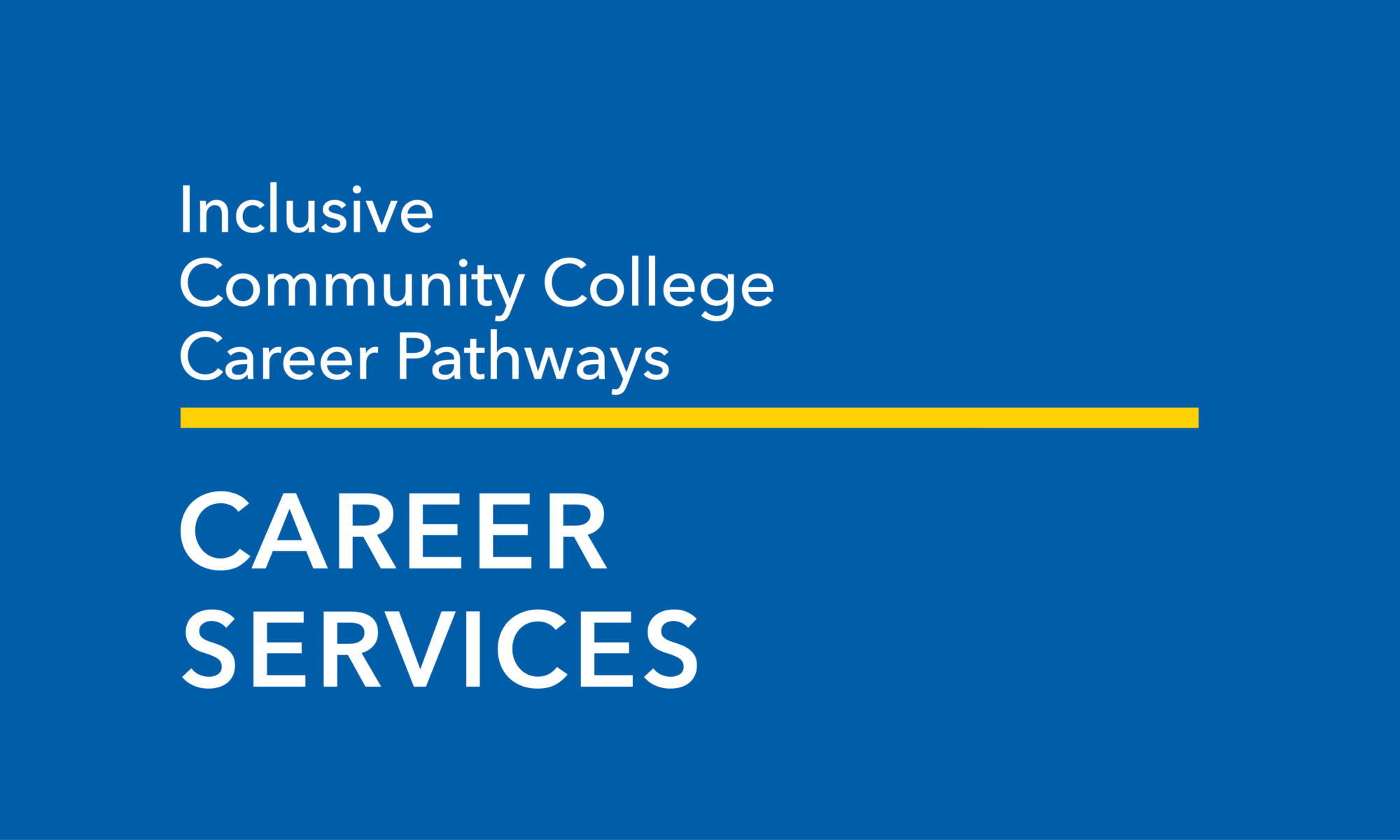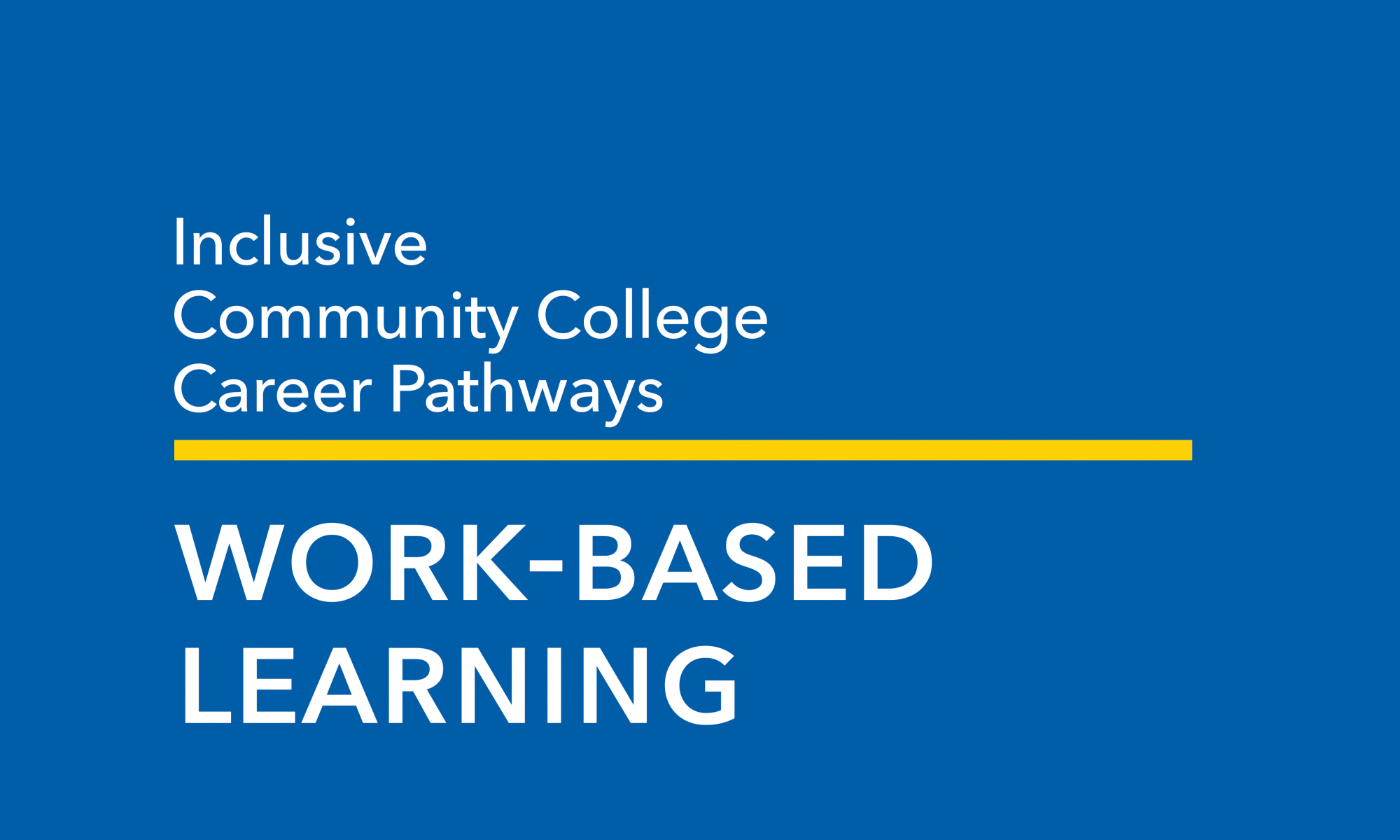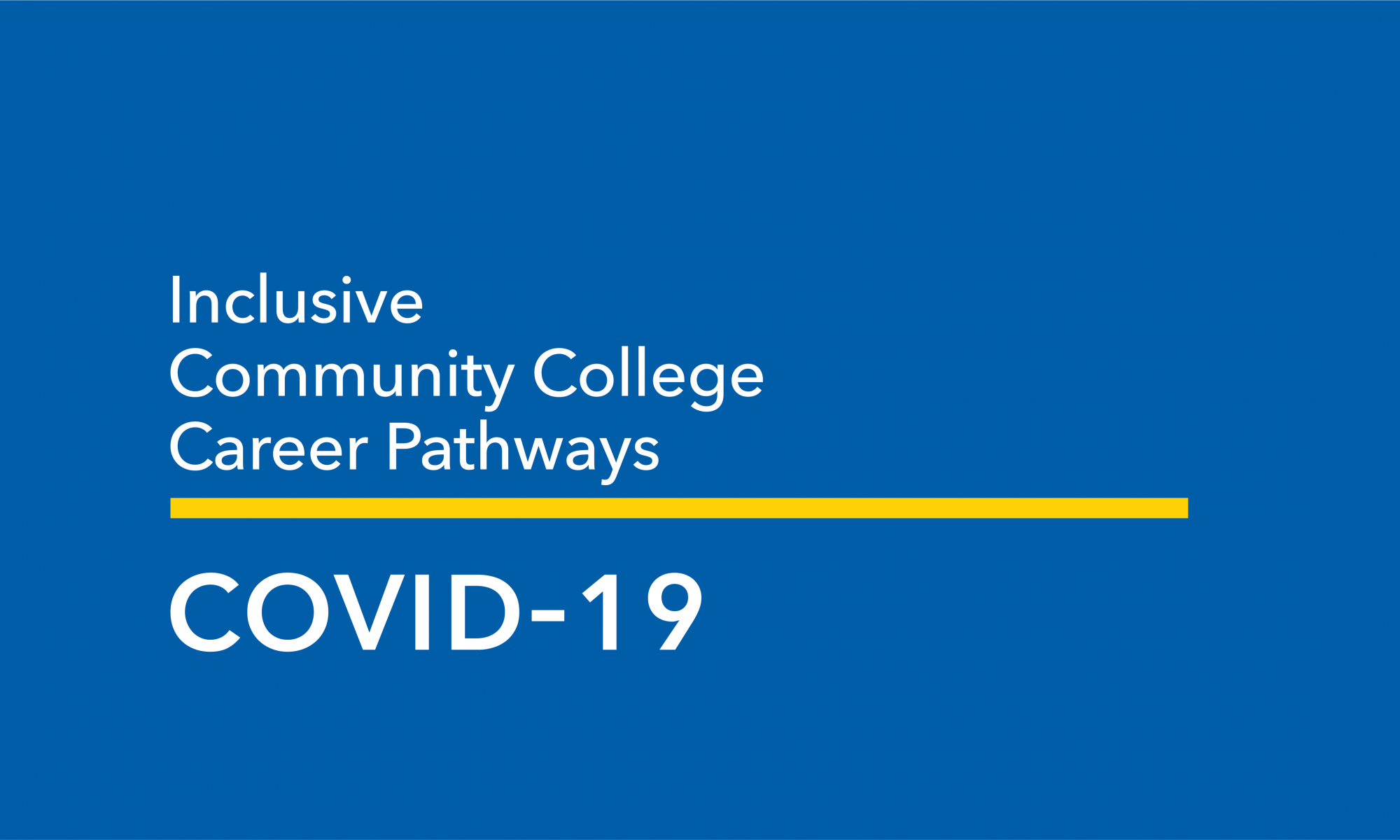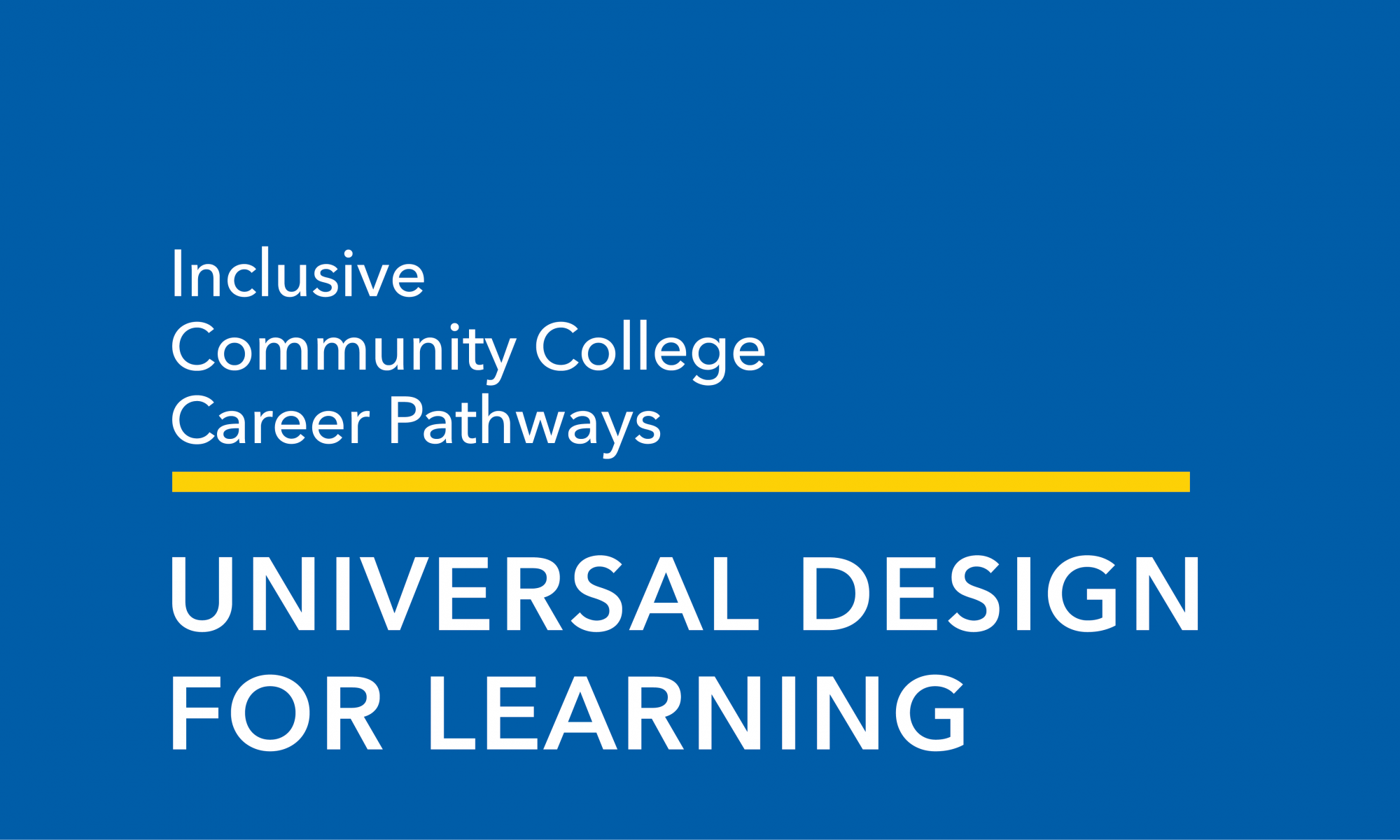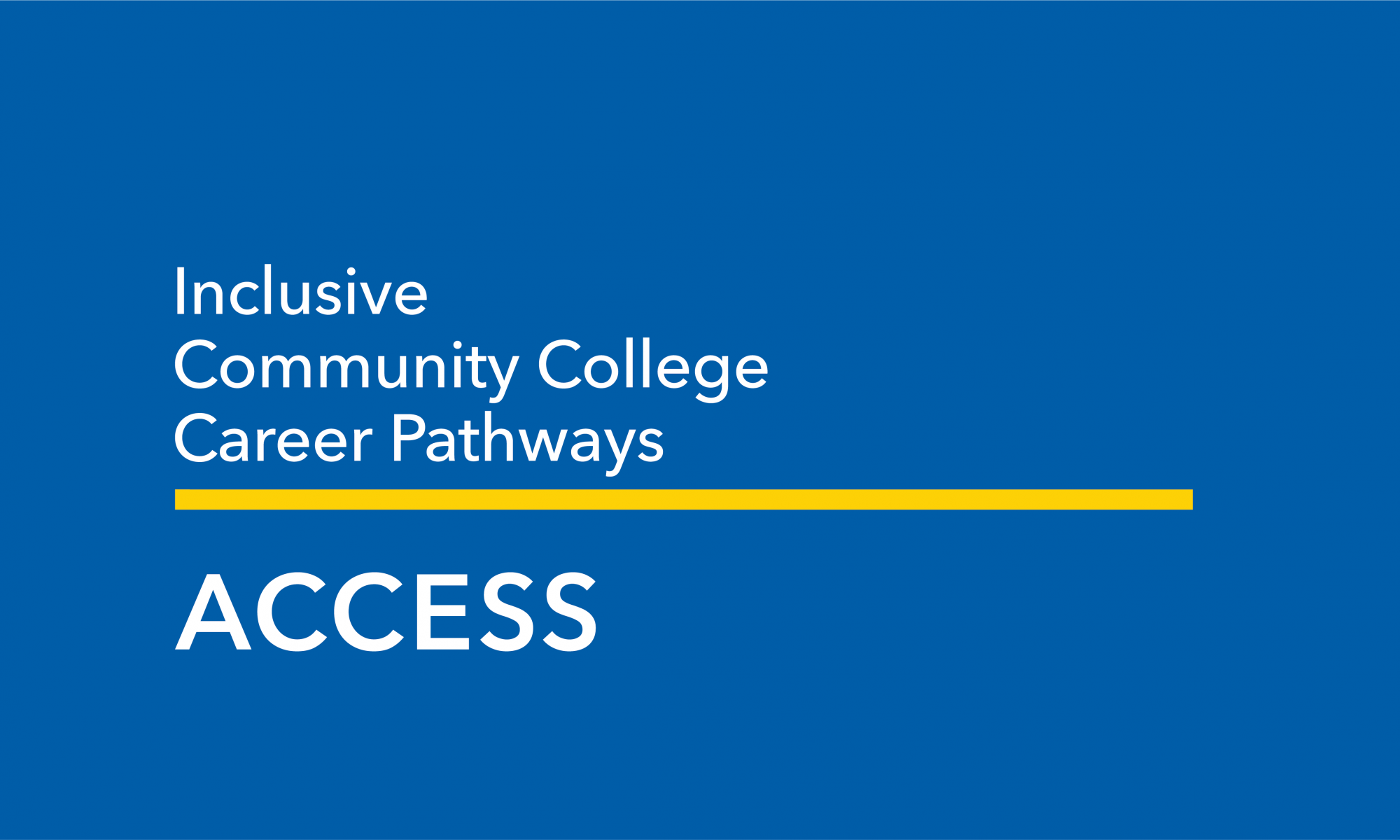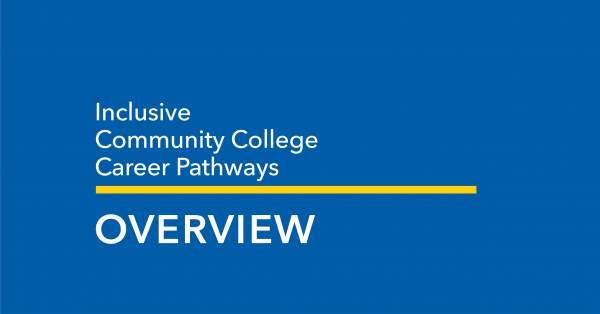This is the final installment of the Inclusive Community College Career Pathways blog series. Read the previous blogs here.
Systems of Support that Work Together
Colleges can collaborate with disability services, career services and community rehabilitation professionals to create customized supports that help students with disabilities find employment after finishing school. These supports include self-advocacy instruction, mentorship opportunities and tailored training and assistance. Together, customized supports help students develop skills to direct their own careers.
Continue reading “Inclusive Community College Career Pathways: Career Services”
